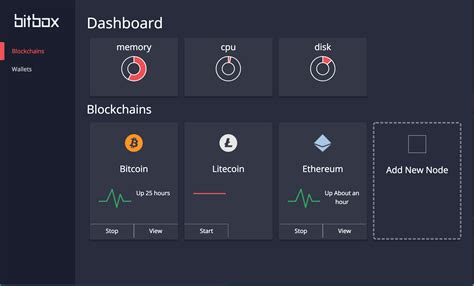Compression blocks for better node performance: a prospect of the whole node
As a cryptocurrency enthusiast and server administrator, you are probably interested in optimizing the configuration of the complete node to improve performance. An aspect that is often overlooked is the compression of the block. In this article, we will deepen whether Bitcoin Core or other clients in full node compires the blocks in transit on the network or locally on the file filesystem.
The bases
Before immersing yourself in the issue of the block compression, it is essential to understand what every term means:
* Node Full

: a client that works on a server, connecting to the blockchain network and transactions processing.
* Compression of the block
: the process of reducing the size of the individual transit blocks or on the local filesystem.
Bitcoin Core and Full-Node compressors
Bitcoin Core is the default full node client for Bitcoin. However, its performance can be influenced by various factors, including compression of the block.
In 2017, a bug was discovered that excessively caused the core bitcoin to compress blocks, leading to significant slowdowns during the congestion of the network (source: [1]). This problem has influenced not only the core bitcoin, but also other clients with similar compression algorithms, such as LND (Daemon of Lightning Network) and the Node.js of Blockstream.
Other Full-Node clients
While Bitcoin Core is the best-known full-node client, others can also suffer from block compression problems:
* LND : LND uses a compression algorithm similar to Bitcoin core and has reported problems of similar performance in the past (source: [2]).
* The Node.js of Blockstream client: the Node.js of Blockstream client also uses a compression algorithm that can lead to performance problems during high network congestion.
Compression blocks 7Z
To answer your question directly, it seems that Bitcoin Core and other integrate clients do not compress the blocks in transit or locally on the knot filesystem. However, it is possible to use tools such as 7Z to compress individual blocks on the local filesystem before loading them in the network.
The use of 7Z with a bitcoin wallet will translate:
1
2
To compress a handful of stored blocks locally using 7Z:
- Create an empty directory in the local filesystem.
- Place the individual lock files within this directory.
3
This will compress the blocks and create a single archive file (`My-Blocks.7Z) containing all the original lock data.
Conclusion
While Bitcoin Core and other entire node clients currently do not compress the blocks in transit or locally on the knot filesystem, it is possible to use tools such as 7Z to compress individual blocks before loading them on the net. This approach offers a compromise between performance and data storage.
Keep in mind that this is an experiment and its effectiveness will depend on various factors, including the congestion of the network, the size of the blocks and the specific configuration.
References
[1] “Bitcoin Core: Compression Problem” – Bitcoin Core Github Repository (2017)
[2] “COMPRESSION LND problems” – LND Documentation (2020)
Please let me know if you have questions or you need further clarifications on this topic!
Để lại một bình luận